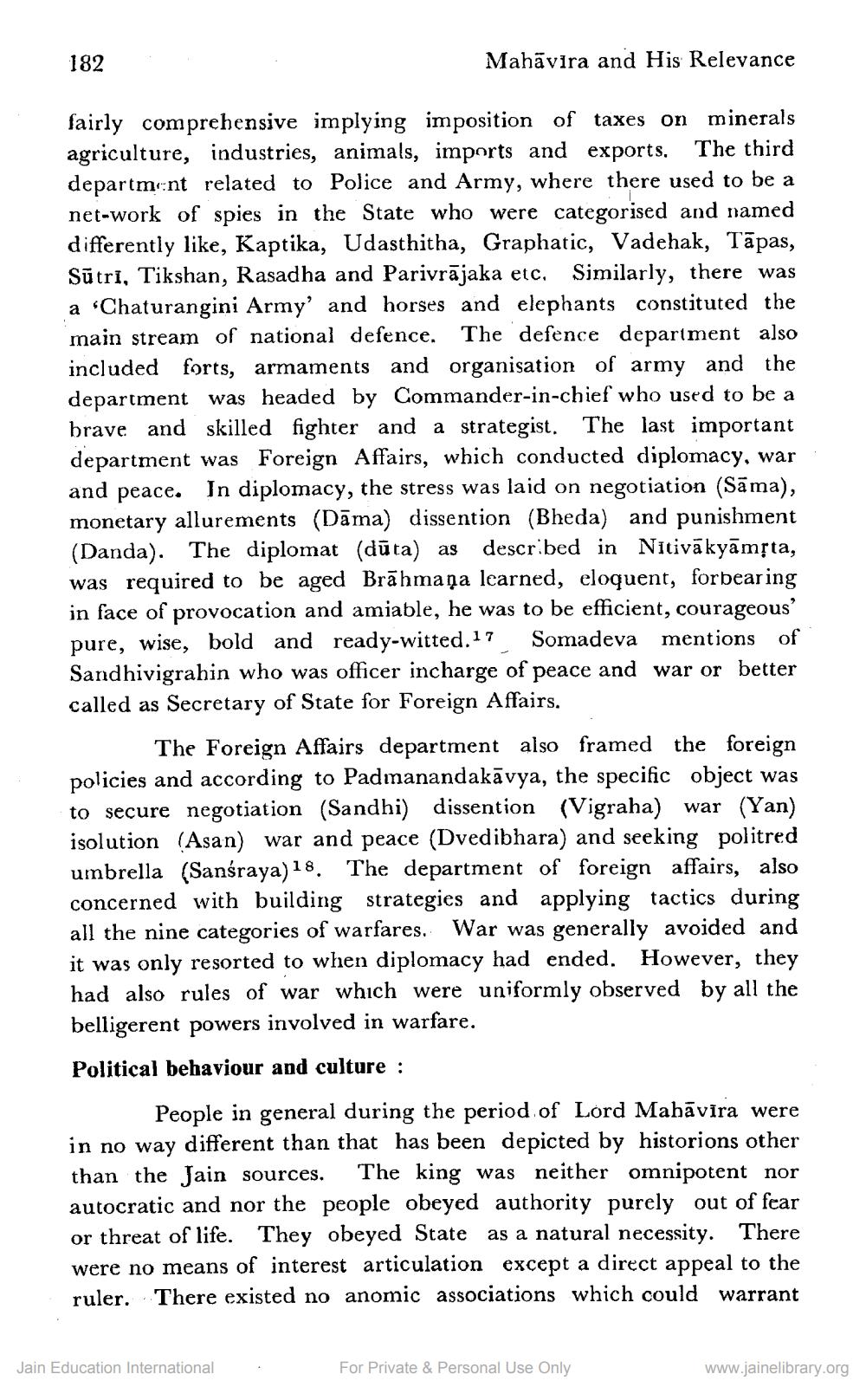________________
182
Mahavira and His Relevance
minerals
fairly comprehensive implying imposition of taxes on agriculture, industries, animals, imports and exports. The third department related to Police and Army, where there used to be a net-work of spies in the State who were categorised and named differently like, Kaptika, Udasthitha, Graphatic, Vadehak, Tāpas, Sūtri, Tikshan, Rasadha and Parivrājaka etc. Similarly, there was a 'Chaturangini Army' and horses and elephants constituted the main stream of national defence. The defence department also included forts, armaments and organisation of army and the department was headed by Commander-in-chief who used to be a brave and skilled fighter and a strategist. The last important department was Foreign Affairs, which conducted diplomacy, war and peace. In diplomacy, the stress was laid on negotiation (Sama), monetary allurements (Dāma) dissention (Bheda) and punishment (Danda). The diplomat (dūta) as described in Nitiväkyāmṛta, was required to be aged Brahmaņa learned, eloquent, forbearing in face of provocation and amiable, he was to be efficient, courageous' pure, wise, bold and ready-witted. 17 Somadeva mentions of Sandhivigrahin who was officer incharge of peace and war or better called as Secretary of State for Foreign Affairs.
The Foreign Affairs department also framed the foreign policies and according to Padmanandakāvya, the specific object was to secure negotiation (Sandhi) dissention (Vigraha) war (Yan) isolution (Asan) war and peace (Dvedibhara) and seeking politred umbrella (Sanśraya) 18. The department of foreign affairs, also concerned with building strategies and applying tactics during all the nine categories of warfares. War was generally avoided and it was only resorted to when diplomacy had ended. However, they had also rules of war which were uniformly observed by all the belligerent powers involved in warfare.
Political behaviour and culture :
People in general during the period of Lord Mahavira were in no way different than that has been depicted by historions other than the Jain sources. The king was neither omnipotent nor autocratic and nor the people obeyed authority purely out of fear or threat of life. They obeyed State as a natural necessity. There were no means of interest articulation except a direct appeal to the ruler. There existed no anomic associations which could warrant
Jain Education International
For Private & Personal Use Only
www.jainelibrary.org




